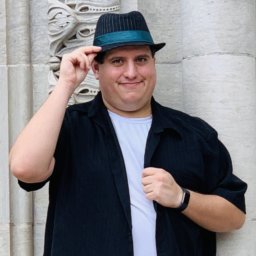
NO MAN IS AN ISLAND UNTO HIMSELF
Dozens of times throughout our growing up years, we are constantly inundated with life lessons that hammer into our heads how we should think, how we should feel, and how we should act. One of the lessons continuously thrown around is that we shouldn’t care what other people think of us. This is a lesson meant to promote free thinking among children, that they shouldn’t define themselves and their actions by what their peers want and feel, and that they should live their own lives unworried about judgment and live in the way they want to live.
And while to some degree this is admirable and wise advice, there is a propensity for many people to take it too far. As I stated in a previous blog, human beings are social animals. No man is an island unto himself, and everybody needs other people.
The issue comes when people take this message to the extreme and stop observing any social mores. Far too often people decide that ‘they don’t care what people think about them’ to such an extreme that they stop engaging in basic customs and manners. These people often end up mocking and rejecting anybody trying to advise them that they should consider acting with politeness and decorum as just another person whose opinion they should ignore (often referred to in internet terms as a ‘hater’ or a ‘troll’)
This is incredibly foolish. There’s something to be said about the young boy who likes pressing flowers and hosting ‘tea parties’ not listening to people when they say they shouldn’t engage in such activities. The same holds for the young girl who likes contact sports and bugs and lizards. But there’s a difference between engaging in personal activities or pursuing career paths that viewed by others as atypical, and the complete rejection of social niceties.
NOT AN EXCUSE FOR RUDE BEHAVIOR
All too often, you’ll see people make flippant, rude comments, scream and yell obscenities at people who disagree with them, insult, judge, and slander other people for various reasons, and physically act out in ways that are unbecoming of anyone over the age of ten. And when those who observe or are affected by these kinds of actions try to speak out against it, many of these people respond with some variation on “I don’t care what you think.”
The problem for these people is that when they end up needing something, naturally, nobody is particularly enthusiastic about lending them any aid or giving them any consideration. Where people would be more inclined to help people who have a history of politeness and manners, nobody is particularly inclined to help somebody who will just turn around and start acting like a brat again. This results in these people being forced to resort to what effectively amounts to ‘kicking and screaming’ to get what they want, and, while they might ultimately end up getting what they want, only reinforces this cycle.
LET’S STOP AND REEVALUATE OURSELVES
Unfortunately, people with autism are very susceptible to this kind of behavior. Though this behavior is by no means exclusive to people with autism, the difficulty that comes with having ASD causes many of those who deal with it to act out in ways seen as immature, impolite, or even aggressive. However, these actions may not be as firmly discouraged as they would be with a neurotypical child. Many parents might take a sort of “they can’t help it” attitude towards these actions. And if this is the mindset that they carry, then they might overemphasize the “I don’t care what you think” attitude and pass it on to their children. In the minds of these parents, and eventually the children too once they’ve grown up, anyone who speaks out against their behavior, even if that behavior is unjustifiably aggressive or explosive, is a foolish bigot and best ignored. When somebody who is put off by these behaviors tries to make some sort of suggestion for how they might better act in the future, these parents, and eventually these adults with autism, parrot the age-old “I don’t care what you think,” deepening the divide between the autism community and the neurotypical everymen that we sorely need help and acceptance from.
Which isn’t to say there aren’t bigots out there and that people aren’t occasionally overly rude in response to the behaviors of those with ASD, but the number is probably less than people who ascribe to these notions think. In my experience, people have generally been accommodating, and most people only wish to help, but can quickly get pushed too far. Especially if people react explosively to people who are actually offering help.
The point I’m trying to make is that to say “I don’t care what other people think” is a self-defeating attitude because we need other people. Especially those of us in the autism community need the help of other people to move forward and to take this overly aggressive “I don’t care what people think of me” attitude not only hamstrings yourself but potentially hurts other people who have similar issues or attitudes as you do. This kind of attitude is already harming the autism community, and it will continue to harm it if we don’t stop and reevaluate how we comport ourselves.






